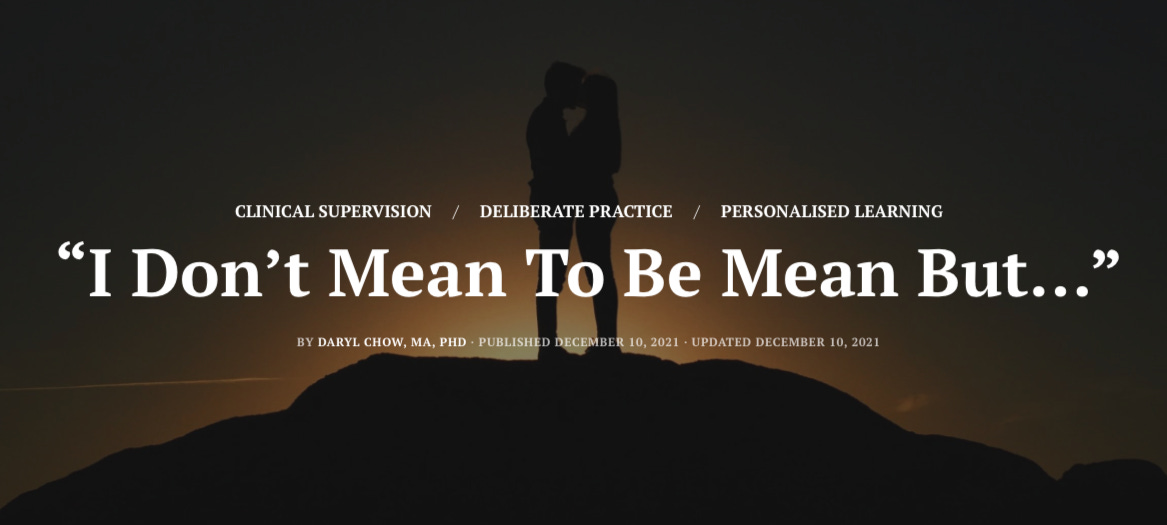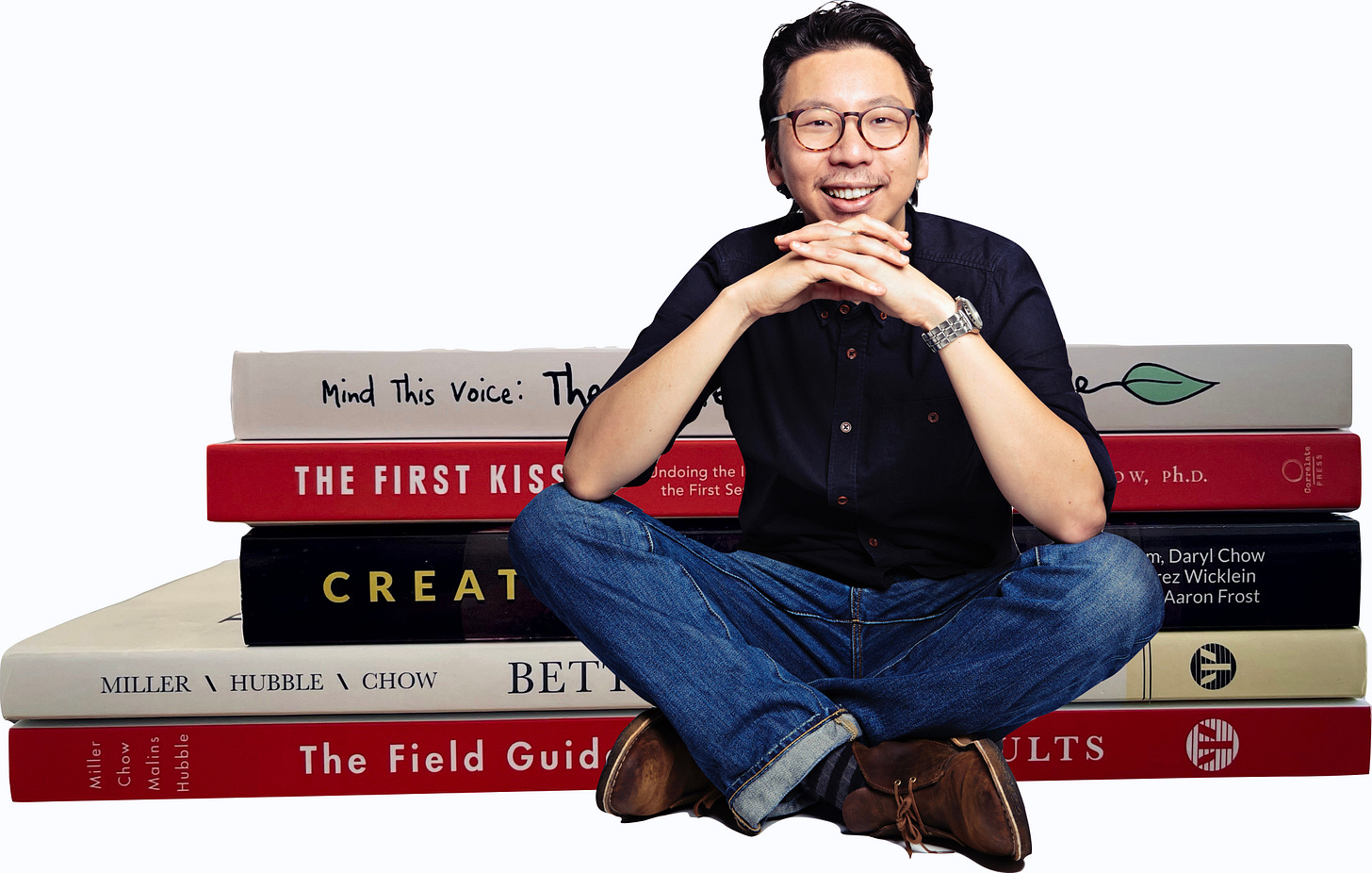The Gap and Good Taste. Frontiers Friday #177 ⭕️
Do you close the gap between your taste and ability, or do you develop good taste?
Thank you for reading Frontiers of Psychotherapist Development (FPD) and our weekly newsletter, Frontiers Friday (FF). If you are new here, learn about me, the About Page and our “Grand Plan” overview post.
These posts are meant to be what Lewis Hyde describes as a “Gift.” What this “Gift” concept means is that
Nothing is expected out of you.
I hope you receive it.
I hope this animates and transforms you.
I hope you spread the love to others.
Improve Your Taste, Not Your Ability
I recently heard Cal Newport on an interview with Brent McKay. Cal is known for his books on productivity (e.g., Deep Work, Digital Minimalism) and his older work on So Good They Can’t Ignore You (a line borrowed from the great comedian Steve Martin). Cal was on this podcast for the fifth time, now promoting his latest book, Slow Productivity (yet to read it).
Why I’m pointing out this particular interview was because of what Cal said towards the end of the interview. He was making the case of not only saying no to non-vital things and slowing down from the psuedo-productivity treadmill, but also
Obsessing over quality… it is like the glue that holds these principles together.
Cal elaborated on how to get better:
You can’t get better unless you know what better means.
He went on to describe the now famous quote by Ira Glass, author, creator and host of the podcast, This American Life:
“Nobody tells this to people who are beginners. I wish someone told me. All of us who do creative work, we get into it because we have good taste. But there is this gap. For the first couple years you make stuff, it’s just not that good. It’s trying to be. It has potential. But your taste -- your taste is still killer. And your taste is why your work disappoints you.
“A lot of people never get past this phase. They quit. Most people I know who do interesting creative work went through years of this. Our work doesn’t have this special thing that we want it to have. We all go through this. And if you’re just getting started or you are still in this phase, you gotta know it’s normal, and the most important thing you can do is do a lot of work. Put yourself on a deadline, so that every week, you will finish one project. It is only by going through a volume of work that you will close that gap and your work will be as good as your ambitions. It’s gonna take awhile. You’ve just gotta fight your way through.”
So it seems like it’s about closing the gap between your taste and the work you’re able to create.
But wait. In a more recent interview with Ira Glass on Michael Lewis’ podcast, Cal points out the following:
Well, this has always bothered me because I've also found this other interview of Ira Glass. It's more recent…
(Michael and Cal) go back and they listen to his first major piece he did for NPR. And they listen to it. And when they're done listening to it, Ira Glass is like, Oh, that's terrible. Yeah, I know that now that's terrible editing.
But then he tells Michael Lewis, I didn't realize that at the time. I thought this was great. You know, I didn't know that that was bad editing.
So what he's telling Lewis directly contradicts the advice from that famous interview. He didn't have a big gap between his taste and his ability. He thought he was great. And so what was really important was not closing the gap between his ability and his taste. It was improving his taste.
Why am I sharing this here on a Substack for psychotherapists?
It reminded me a thought I had more than 3 years ago. (I remember this because I blogged about it with time-stamps on it).
Here’s what I said in Develop Good Taste: “Before you can develop good abilities, you’ve got to develop good taste.”
I said this because I came to realise most psychotherapists in practice haven’t had much of a chance to really watch other therapists of various theoretical orientation in action—even in their traineeship days. Some may have watched snippets in live workshops from the trainer’s live demonstration or from recorded materials. Some may have seen the Gloria tapes with Carl Rogers, Albert Ellis and Fritz Perls (turns out that was rigged). But this is nowhere close enough to develop a feel, to develop good taste.
I am a big fan of Cal Newport’s work, so I’m biased to say that he’s on to something. Not just in the creative field, but especially so in domains where the environment is wicked, not kind (see this post on what wicked and kind environments are).
Ok, so all I have to do is listen to copious amounts of therapy recordings?
Around the same time, I wrote about how one can deliberately listen to therapy recordings, and gain as much mileage from the exercise, using the following sequence of listening:
1. PLAY—> 2. PAUSE —> 3. ACT—> 4. PLAY —>
5. REFLECT —> 6. SYNTHESISE
I expanded on this structure using a therapy recording as an example in this post, “I don’t mean to be mean, but…”
Taste and See. You can almost always improve your taste.
Notice Board:
2nd Fireside chat on 26th of Mar, Tues:
Scott Miller and I held our first virtual fireside last tuesday. What a treat to have people bounce off the conversation, thinking aloud and exploring ideas. We talked about the possibilities and limitations of deliberate practice (DP), the role of the coach, the unintended consequences of incentivising DP, the role of motivation, and what it means to be a witness to each other.
Our monthly fireside is a free, “no expectations, no agenda” monthly live zoom meeting. Just an opportunity to explore deliberate practice, feedback-informed treatment, and professional development together with other like-minded professionals.
Cost: Free
When: 8am Central Time on the last Tuesday of every month. Second meeting to be held on 26th of Mar, 2024.
Space is limited (all 100 seats were taken up within a few days, so register early, and kindly make sure you block your calendar to attend this).
Registration is required.Waitlist for Structure and Impact course:
Join the 4th cohort of S&I, aimed to help you structure the arch of the therapy hour, so that you create an impact for those you are trying to help. Drop an email to admin@darylchow.com with the title “Waitlist for S&I” and we will send you a special early bird promo code.
Note: Thanks to those who already sent in. You’d hear from us shortly!Contribution:
If you like to contribute to Frontiers of Psychotherapist Development (FPD), please drop me an email (admin@darylchow.com). Your article can be about your journey, what you discovered, what your struggles were, etc. Said in another way, we would love to learn about your high-points, low-points, and turning-points.
True gifts goes in a circle, and not a straight line. Others might benefit from your learnings. Or if you decide to start your own Substack, let me know. I’d love to support your efforts.
Daryl Chow Ph.D. is the author of The First Kiss, co-author of Better Results, The Write to Recovery, Creating Impact, and the latest book The Field Guide to Better Results.








The "Gloria" tapes were rigged. Good to know Daryl. This is proof that the received "wisdom" of psychotherapy training needs to catch up with the meta-analyses over the last decades showing that what actually works to improve therapy outcomes is measuring outcome & alliance data using Feedback Informed Treatment (FIT) & then getting a coach who intimately knows your work to help you with Deliberate Practice (DP). This means finding a small, specific area just outside the clinician's area of proficiency & deliberately practicing that. Watching the outcome & alliance data shows whether we're improving or not - according to the client's view. This practice is unique for each clinician & can't be standardised.